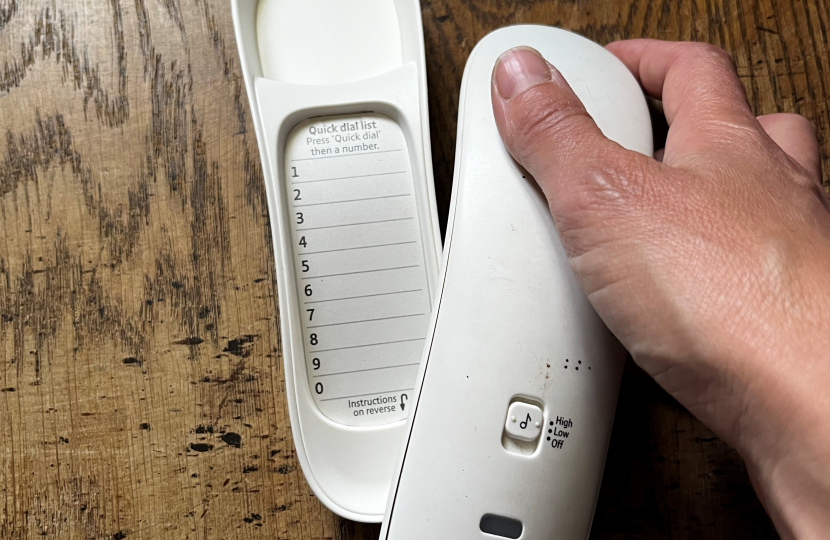
This week's article for the Herald and Post looks at the consequences for all of us when the analogue phone line is switched off in 2025...
'The analogue switch off.’ ‘The 2G/3G phase out.’ ‘The era of ultrafast broadband.’ ‘The end of copper wires.’
You may have heard about some or all these technological changes that are coming down the track. Or you may be completely unaware and wondering what on earth I’m talking about.
Change is coming to how we make and receive calls from our landlines. This has implications for households and small businesses. It will affect how we run devices in the future, such as care or fall alarms, home security alarms and even payment terminals in small businesses.
The analogue line, or Public Switched Telephone Network (PTSN) to give it its formal title, is being switched off in less than two years’ time. At the same time, the 2G and 3G data network is slowly being phased out to be replaced by faster and more reliable 4G and 5G. And, added to that, the old copper network is being replaced by ultrafast full fibre broadband.
Some of this work is already underway. Some is at the very early stages. Regardless of how far these improvements have progressed, we all need to be clued up as to what the implications are for each of us.
When the analogue line is switched off at the end of 2025, and all landlines are moved to a broadband connection, known as Voice over Internet Protocol (VoIP), any device currently reliant on an existing landline will need to be checked for compatibility and, potentially, upgraded to work with the new technology.
There are so many questions to answer. Too many to attempt to answer here. Questions such as: can I keep my existing handset and telephone number? Will I need to purchase a broadband connection if I don’t currently have one? What happens to VoIP if there is a power cut? When will we see improvements to our broadband? Will my care alarm still work?
In East Hampshire such questions take on an extra importance in the parts of our area which today do not have fast broadband or good mobile coverage, or where there are more frequent power cuts.
Over the next few months, I plan to meet with a whole host of organisations, including industry bodies, the regulator, providers of care and security alarms, other rural MPs and mobile phone and energy companies, to try and get answers to some of these questions.
I’ll be updating my website as I go along to share everything I learn from these meetings and to help you prepare for the change.
For most people, the shift from analogue to VoIP will be pretty seamless and all handled by your current telecoms or broadband provider. However, for those who rely on the existing landline for their care or security alarms, or do not have an existing broadband connection, or are more likely to need to call the emergency services due to their vulnerabilities, there is more to consider.
The regulator, Ofcom, in its latest guidance to industry, has made it clear that vulnerable customers will need extra support to upgrade their devices and extra time to do so.
Some of the energy companies have already set up priority registers for at-risk individuals requiring more assistance, in the event of a power cut, once the new landline is up and running. This could be, for example, providing back-up battery packs for digital landlines so that calls to emergency services can still be made even when the power is lost.
Being prepared is critical. Do keep an eye on my website over the coming months for updates and take a look at the existing information for consumers on the Ofcom website (ofcom.org.uk).



